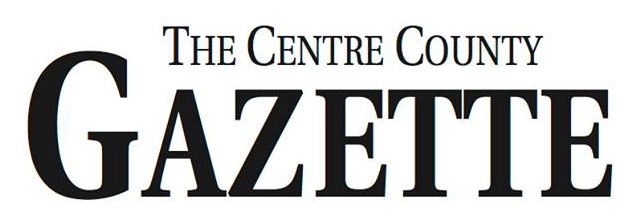
no description

no description
“Philipsburg is one of my favorite towns in my district,” Thompson said. “I have a lot of favorites, obviously, but Philipsburg, for me, is versatile. I grew up in Centre County. As a young boy, my grandmother would bring me up here and we’d go to the Rowland Theatre. As an adult, I’ve really come to appreciate the people in Philipsburg. I’ve developed some really dear friendships here, and I’m excited by the progress I’m seeing made.”
Thompson, an active member of the House Agriculture Committee, said his vision for Philipsburg is in keeping with the one he has for the agricultural communities he represents.
He said his goals for these areas are two-fold: “to restore a robust rural economy” and “to repopulate our rural communities.”
Thompson said it’s “exciting” that Philipsburg has been designated an Opportunity Zone.
According to the IRS, Philipsburg is characterized on their website as, “an economically distressed community where new investments, under certain conditions, may be eligible for preferential tax treatment. Localities qualify as Opportunity Zones if they have been nominated for that designation by the state and that nomination has been certified by the Secretary of the U.S. Treasury via this delegation of authority to the Internal Revenue Service.”
Centre County is home to four Opportunity Zones that were created by the Tax Cuts and Jobs Act of 2017. In July of this year, Scott Turner, executive director of the White House Opportunity and Revitalization Council, joined Thompson and other local officials to tour Bellefonte and discuss Opportunity Zones.
On Saturday, Thompson inspected a historic building on Philipsburg’s Front Street that Kelmenson, who operates the real estate firm Reframe, is using Opportunity Zone incentives to restore.
“(Opportunity Zones) are places where you don’t normally see a lot of investors,” Thompson said. “What the Opportunity Zone legislation does — and I was proud to support it — is creates an incentive for investors. When investors sell their investment and realize a profit, they have to pay a capital gains tax. And it’s a significant tax. So this legislation says if you invest in one of these Opportunity Zones, such as in Philipsburg, for ten years, you pay zero capital gains tax.
“The cool part about this is the government isn’t going to come in and dictate what you have to invest in,” Thompson added. “That’s up to the rural community to identify what their needs are. It could be affordable housing. We just visited (Cameron Bakeries) down the street — a wonderful bakery. The two owners came from New York City — they’re here in Philipsburg, which is very exciting. Maybe they’d like some bigger space, because they outgrow their business. (Opportunity Zones are) a program that could help them do that.”
Thompson said Opportunity Zones are also ideal for entrepreneurs looking to start a business, or to bring resources, such as high-speed internet, to remote places.
Another element key to revitalizing rural areas is attracting young people, Thompson said.
“One of our biggest exports has been our young people,” said Thompson. “I understand a young person’s interest in seeing what’s out there, but we want our communities to be places where they see that the grass isn’t greener on the other side of the fence — housing costs are higher, traffic is heavier, the environment’s not as clean, crime is higher, schools maybe aren’t as safe. We have the opposite of that here.”
Thompson said he’s “already committed” to the PRC and Philipsburg as a whole and was ready at Saturday’s event to set up the next meeting. He said he wants to bring in representatives from several federal agencies, including the United States Department of Agriculture, the Rural Economic Development office and the Small Business Administration to discuss more opportunities.
“There’s nothing sadder than when blight and abandonment takes over in a town,” Thompson said. “But the fact is, these folks are rising to the occasion. These are local citizens who love this community. Some grew up here, have lived here their whole lives. Some have come here from other places. They’re looking at what resources are out there that they can pursue — either privately or even more effectively through public-private partnerships. So that’s why I’m here today: to see, to listen, to tour, and also to share … Where do we go from here?”
Receive all the latest news and events right to your inbox.

403 S. Allen St.
State College, PA 16801
(814) 238-5051
